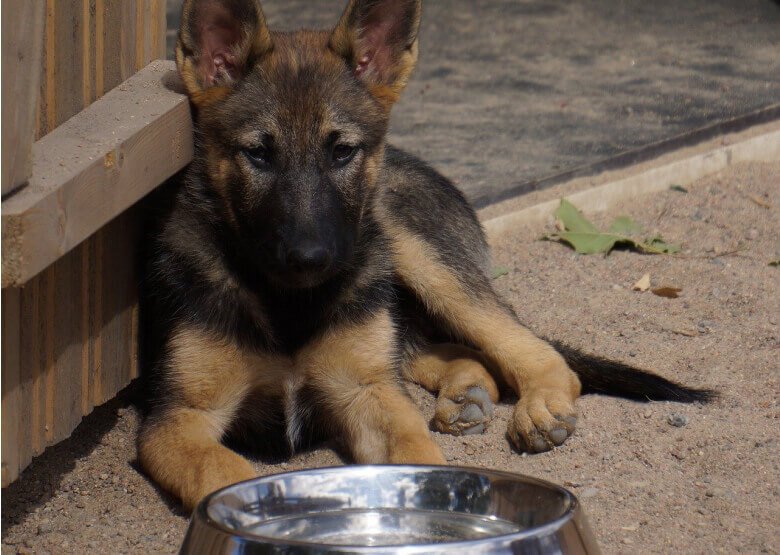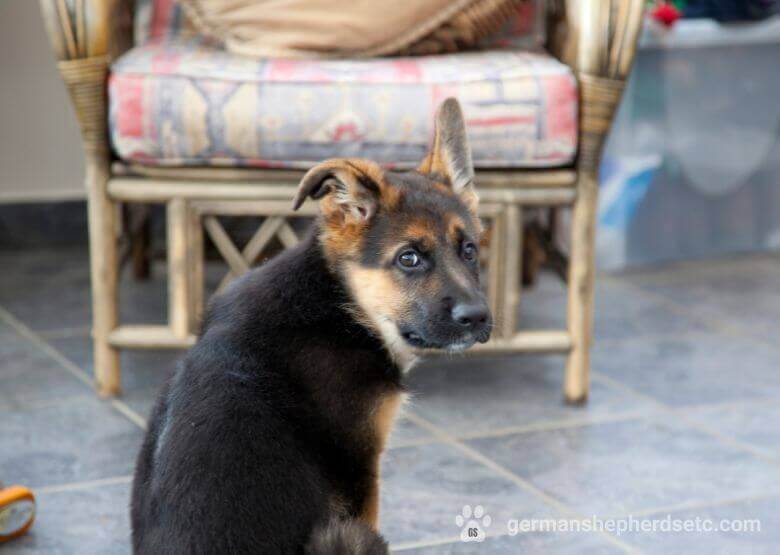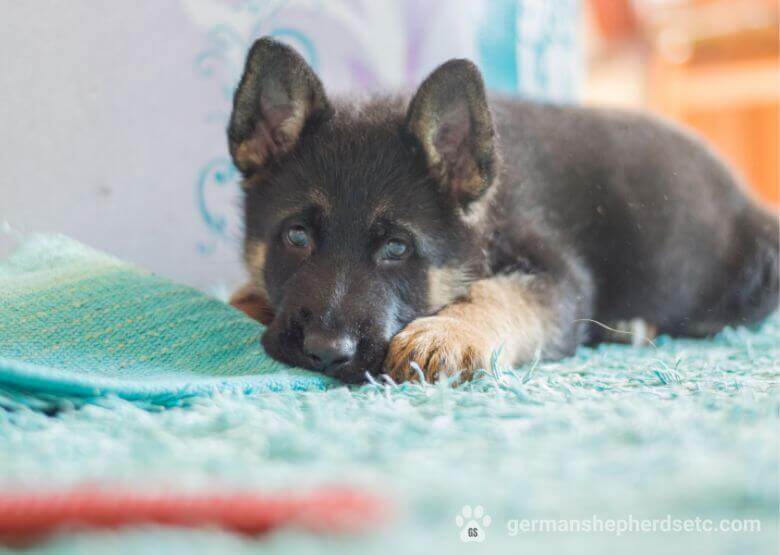Table of Contents
Have you noticed recently that your German Shepherd seems small compared to dogs of the same breed? Well, you’re not alone! It’s a common worry among GSD owners. Sometimes, a pup is of a small German Shepherd breed, and his size is supposed to be smaller. In other cases, the problem may be fixed by adjusting the diet.
However, there are cases when the dog’s small size is signaling about an illness. This article focuses on why you have a small German Shepherd dog.
Common Reasons Why German Shepherds Are Smaller
If you’ve been contemplating “why is my German Shepherd so small,” then we have a few most common reasons listed:
- bad nutrition;
- inherited smallness;
- dental problems;
- anxiety;
- age;
- environment changes.
Your pup can suffer from one or several of these issues. However, a simple visit to the vet can help your dog get better. Let’s delve into the details of what could make the pet smaller.
Bad Nutrition
If you were asking yourself, “why my German Shepherd is small?” it could be due to your dietary choice for the pup. It’s possible that the pup isn’t getting enough calories for its activity level. Typically, German Shepherds must consume between 1,272 to 1,540 calories daily. Moreover, if your dog is playful and consumes tons of energy throughout the day, you should increase its calorie intake to around 1,740-2,100 calories.
One of the easiest methods to check if that’s your case is to look at the GS’s behavior. Is your dog always hungry and trying to eat things he shouldn’t? If yes, then you’re not feeding the pup enough. Check the box with the dog food to see the recommended portion size. Get a habit of portioning the dog’s meals.

Inherited Smallness
Your pup may belong to a small German Shepherd dog breed. The size of a GS is inherited from their parents. Even grandparents, great-grandparents, and so on can influence the pet’s size. Your GS likely comes from a line of smaller-sized dogs.
If you recently took your dog to the vet, and they didn’t find any illnesses or haven’t even asked you about the pet’s size, your dog is likely supposed to be of this size. There is nothing wrong with a little German Shepherd, provided they eat normally and healthily and have no dental issues. It’s also possible that you have a small German Shepherd mix, where one parent is German Shepherd, while the other belongs to a different breed (more on that in the following section).
It’s also worth mentioning that it takes 18 months to two full years for German Shepherds to reach their full size. If your dog is younger, you may need to wait a bit until the dog is fully mature.
One recent study found that dog size may be determined by a dog gene mutation. Moreover, this mutation that determines the small size is even older than a variation that contributes to the large size. Thus, your dog may be 100% healthy, but his genes determine its size.
Small German Shepherd Mix
A GS mix is a dog breed created by combining the German Shepherd with other dog breeds that are often smaller. These dogs range in size from medium to large. Their size depends on the parent they inherit traits from. If you don’t know your dog’s parents, you can order a DNA test to tell the exact breed of your pup.
Anxiety

If your GSD suddenly starts looking smaller, it may be due to anxiety disorder. How to tell if that’s the case? If the pup is acting strangely lately while also losing weight, that may be the case. If your dog is unusually spooked or is trying to hide, he may have experienced an unpleasant event. The best course of action is to visit a behaviorist or a vet.
Age
GS’s age may be a factor in weight loss. Most owners notice that as their dog’s age, they lose their appetite and become smaller. It’s a natural process that may be followed by dental difficulties (teeth loss) and arthritis. Thus, their activity levels drop, and they don’t need as much food as before.
While it is common for senior dogs to lose weight, if your pet is losing weight unusually fast, it’s best to consult a veterinarian.
When Should You Be Worried?
Typically, all reasons mentioned above can be fixed. A standard vet appointment should verify the reason why the German Shepherd is short or skinny. However, sometimes the problem can’t be fixed by a diet change.
Parasites
It’s relatively uncommon for GSDs today to get infected by parasites, but it could be the case. It could be the case if you notice the dog’s stomach is bloated or swollen. Moreover, other symptoms include vomiting and diarrhea.
Your dog can still be infested even if you have dutifully kept up with all necessary vaccines and other treatments. Fortunately, diagnosing parasites is easy, so you should schedule a vet’s appointment.
Medical Illnesses
Perhaps your German Shepherd is smaller due to a medical condition. Several disorders can influence the development and nutrition intake. It should be concerning if your GS is eating normally but not gaining weight. Some of the most common diseases include the following:
- Diabetes.
- Maldigestion and/or malabsorption.
- Liver or kidney disease.
- Heart disease.
- Cancer.
If your pup is eating as normal yet is shrinking in size, it’s the best idea to schedule a veterinarian appointment to eliminate all serious risks.
Final Thoughts
In most cases, there are no reasons to worry about the health of your dog. However, veterinarians recommend pet owners schedule appointments at least once a year to check the health of their little friend. If you are worried that your dog is suffering, it’s best to calm your mind by visiting the vet.
